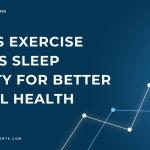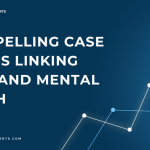Table of Contents
- Understanding the Sleep-Depression Link
- How Sleep Deprivation Impacts Mood
- Sleep Quality vs. Sleep Quantity
- The Role of REM Sleep in Emotional Regulation
- Cognitive Functioning and Sleep
- Establishing Healthy Sleep Patterns
- Seeking Professional Help
Understanding the Sleep-Depression Link
Depression and sleep are intricately connected, forming a cycle that can be challenging to break. Research indicates that individuals suffering from depression often experience sleep disturbances, such as insomnia or hypersomnia (excessive sleeping). According to the National Institute of Mental Health, about 90% of people with depression report sleep problems. Understanding how sleep affects depression can empower individuals to make informed decisions about their mental health.
“Understanding the connection between sleep and depression is a crucial first step towards better mental health.”
FAQ:
- Can improving sleep help alleviate depression?
Yes, better sleep hygiene can lead to improvements in mood and overall mental health. For more insights on enhancing your mental well-being through sleep, explore our article on 10 effective techniques to boost your sleep hygiene.
How Sleep Deprivation Impacts Mood
Lack of sleep can significantly impact our emotional well-being. When we don’t get enough rest, our brains may struggle to process emotions effectively. A study published in the journal Sleep found that sleep deprivation can lead to increased irritability and a greater susceptibility to stress. This means that when you’re sleep-deprived, everyday challenges can feel overwhelming, potentially exacerbating feelings of sadness or hopelessness.
“Sleep deprivation doesn’t just make you tired; it can amplify negative emotions and hinder your ability to cope.”
Visual Element: Table on Effects of Sleep Deprivation
| Effect of Sleep Deprivation | Description |
|---|---|
| Increased irritability | Shortened sleep can heighten emotional responses. |
| Impaired judgment | Lack of sleep affects decision-making abilities. |
| Heightened stress response | Inability to cope with daily stressors. |
Sleep Quality vs. Sleep Quantity
It’s not just about how long you sleep; the quality of your sleep matters greatly. Deep, restorative sleep is essential for emotional regulation. Poor sleep quality can lead to fragmented sleep cycles, which may prevent you from reaching the deeper stages of sleep that rejuvenate the mind and body.
“Quality trumps quantity when it comes to sleep. Prioritize deep, restorative sleep to foster emotional balance.”
Tips for Improving Sleep Quality:
- Create a sleep-friendly environment: Keep your bedroom dark, cool, and quiet.
- Limit screen time before bed: Blue light can disrupt melatonin production.
- Establish a calming pre-sleep routine: Activities like reading or meditation can promote relaxation.
FAQ:
- How can I tell if I’m getting quality sleep?
Monitor your mood and energy levels during the day. If you’re often tired or irritable, your sleep quality might need improvement. For more techniques to enhance your sleep quality, check out our piece on 10 effective strategies for managing anxiety.
The Role of REM Sleep in Emotional Regulation
Rapid Eye Movement (REM) sleep plays a crucial role in processing emotions and memories. During REM, our brains engage in intense activity, which helps us process daily experiences and emotions. A lack of adequate REM sleep can impair this process, potentially leading to persistent feelings of sadness or anxiety.
“REM sleep is the brain’s nightly therapy session. Don’t skip it.”
FAQ:
- How much REM sleep do we need?
On average, adults should aim for 1.5 to 2 hours of REM sleep per night, which typically occurs in cycles throughout a full night’s sleep.
Cognitive Functioning and Sleep
Sleep affects cognitive abilities such as attention, problem-solving, and decision-making. When we’re sleep-deprived, our cognitive functions decline, making it more challenging to think clearly and make rational decisions. This can lead to a cycle where cognitive decline contributes to depressive feelings, creating a feedback loop that’s hard to escape.
“Sleep deprivation is not just about fatigue; it can lead to poor decision-making, which can worsen depressive symptoms.”
Visual Element: Diagram of Sleep’s Impact on Cognitive Function
Establishing Healthy Sleep Patterns
Creating and maintaining healthy sleep patterns is vital for mental health. Here are some strategies to consider:
- Stick to a schedule: Go to bed and wake up at the same time every day, even on weekends.
- Limit naps: While short naps can be beneficial, long or irregular napping can negatively affect nighttime sleep.
- Watch your diet: Avoid heavy meals, caffeine, and alcohol before bedtime.
“Consistency is key. A regular sleep schedule can work wonders for your mental health.”
By prioritizing sleep, you can significantly improve your mood and overall mental health. For additional resources on boosting mental health through positive habits, look at our article on 10 daily habits to boost your positive mindset.
FAQ:
- What if I can’t fall asleep?
If you struggle to fall asleep, try getting out of bed and doing a calming activity until you feel sleepy again.
Seeking Professional Help
If sleep issues persist and significantly impact your mental health, it may be time to consult a mental health professional. Cognitive Behavioral Therapy for Insomnia (CBT-I) is an effective treatment that can address both sleep and depression. This therapy helps identify and change thoughts and behaviors that contribute to sleep problems, ultimately improving both sleep quality and mood.
“Don’t hesitate to seek help. Professional support can be a game-changer for your mental health.”
Resources:
FAQ:
- When should I see a doctor for sleep problems?
If you experience chronic sleep disturbances lasting more than a few weeks, it’s advisable to seek professional help. For further exploration of mental health support, consider our article on 10 effective strategies to enhance workplace mental health.
In conclusion, understanding the connection between sleep and depression is crucial for improving mental health. By prioritizing sleep and implementing healthy habits, you can take proactive steps towards feeling better. Remember, you are not alone, and help is available if you need it. Sweet dreams and brighter days are on the horizon!




